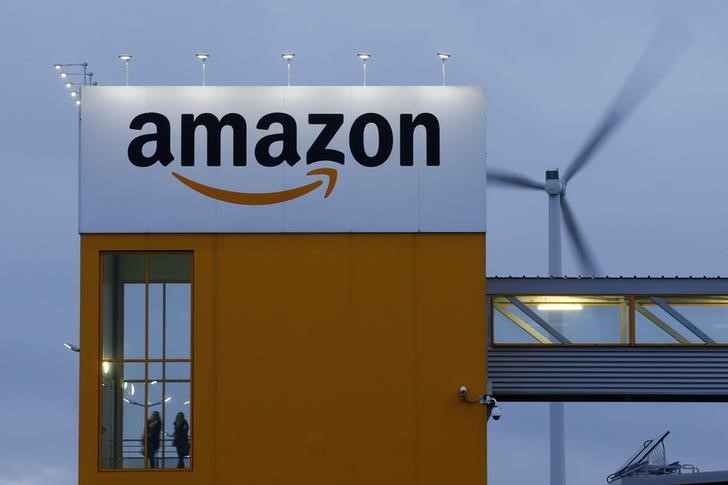
WASHINGTON (Reuters) -A U.S. agency said on Thursday it is permitting three airports to enter into security agreements with Amazon.com Inc (NASDAQ:AMZN)’s Amazon Air unit that will allow the company to assume some security functions and facilitate Amazon’s rapid planned hiring at the airports.
In a notice, the Transportation Security Administration (TSA) said Cincinnati/Northern, Baltimore/Washington (BWI), and Chicago Rockford can enter into agreements allowing Amazon Air to assume some security functions.
The agreements are typically used when an entire airport terminal is serviced exclusively by one aircraft operator. The exemption will allow Amazon to assume physical control of some airport access and “initiate the employee vetting functions that the airport authorities would otherwise be required to conduct” as well as handle ID issues.
“Amazon Air possesses the latest, sophisticated access control and monitoring systems that enhance security by significantly restricting access to cargo and aircraft,” TSA said.
Amazon did not immediately comment.
TSA said the exemptions will “facilitate the rapid hiring of significant numbers of new personnel to support Amazon Air’s expanded presence at these locations, aiding the economy in the surrounding areas.”
A TSA spokesman said the agreements hold Amazon Air “to the same TSA-regulated security standards that airport and aircraft operators adhere to in their operations.”
TSA typically allows airports to enter only into what are known as Exclusive Area Agreements with aircraft operators or foreign air carriers.
TSA said Amazon Air “has represented to TSA that it intends to hire significantly more employees over the next 12 to 18 months” at the airports.
Amazon Air maintains operations at numerous domestic and international airports and owns air cargo aircraft, but does not operate the aircraft itself and is not an aircraft operator under TSA regulations, the agency said.
“Amazon Air benefits from ample resources to purchase advanced equipment as needed, without regard to local government budget restrictions that many airports face,” TSA said.

